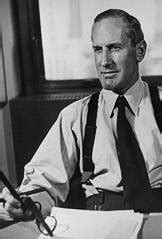A Quote by Joseph Addison
Ladies are always of great use to the party they espouse, and never fail to win over numbers to it. Lovers, according to Sir William Petty's computation, make at least the third part of sensible men of the British nation; and it has been an uncontroverted maxim in all ages, that though a husband is sometimes a stubborn sort of a creature, a lover is always at the devotion of his mistress. By this means, it lies in the power of every fine woman, to secure at least half a dozen able-bodied men to his Majesty's service.
Quote Topics
Able
According
Ages
Always
Been
British
Computation
Creature
Devotion
Dozen
Every
Fail
Fine
Great
Half
His
Husband
Ladies
Least
Lies
Lover
Lovers
Majesty
Make
Maxim
Means
Men
Mistress
Nation
Never
Numbers
Over
Part
Party
Petty
Power
Secure
Sensible
Service
Sir
Sometimes
Sort
Stubborn
Third
Though
Use
William
Win
Woman
Related Quotes
No one accuses the Gunner of maudlin affection for anything except his beasts and his weapons. He hasn't the time. He serves at least three jealous gods—his horse and all its saddlery and harness; his gun, whose least detail of efficiency is more important than men's lives; and, when these have been attended to, the never-ending mystery of his art commands him.
Pound was silly, bumptious, extravagantly generous, annoying, exhibitionistic; Eliot was sensible, cautious, retiring, soothing, shy. Though Pound wrote some brilliant passages, on the whole he was a failure as a poet (sometimes even in his own estimation); Eliot went from success to success and is still quoted--and misquoted--by thousands of people who have never read him. Both men were expatriates by choice, but Eliot renounced his American citizenship and did his best to become assimilated with his fellow British subjects, while Pound always remained an American in exile.
He who is himself crossed in love is able from time to time to master his passion, for he is not the creature but the creator of his own misery; and if a lover is unable to control his passion, he at least knows that he is himself to blame for his sufferings. But he who is loved without reciprocating that love is lost beyond redemption, for it is not in his power to set a limit to that other's passion, to keep it within bounds, and the strongest will is reduced to impotence in the face of another's desire.
A fondness for power is implanted in most men, and it is natural to abuse it when acquired. This maxim, drawn from the experience of all ages, makes it the height of folly to intrust any set of men with power which is not under every possible control; perpetual strides are made after more as long as there is any part withheld.
Financial capacity and political perspicacity are inversely correlated. Long-run salvation by men of business has never been highly regarded if it means disturbance of orderly life and convenience in the present. So inaction will be advocated in the present even though it means deep trouble in the future. Here, at least equally with Communism, lies the threat to Capitalism. It is what causes men who know that things are going quite wrong to say that things are fundamentally sound.
In short, no association or alliance can be happy or stable without me. People can't long tolerate a ruler, nor can a master his servant, a maid her mistress, a teacher his pupil, a friend his friend nor a wife her husband, a landlord his tenant, a soldier his comrade nor a party-goer his companion, unless they sometimes have illusions about each other, make use of flattery, and have the sense to turn a blind eye and sweeten life for themselves with the honey of folly.
Poverty, we may say, surrounds a man with ready-made barriers, which if they do mournfully gall and hamper, do at least prescribe for him, and force on him, a sort of course and goal; a safe and beaten, though a circuitous, course. A great part of his guidance is secure against fatal error, is withdrawn from his control. The rich, again, has his whole life to guide, without goal or barrier, save of his own choosing, and, tempted, is too likely to guide it ill.
The intellectual part of religion is a private affair between every man and his Maker, and in which no third party has any right to interfere. The practical part consists in our doing good to each other. But since religion has been made into a trade, the practical part has been made to consist of ceremonies performed by men called priests ... By devices of this kind true religion has been banished, and such means have been found out to extract money, even from the pockets of the poor, instead of contributing to their relief.
Women have always been more critical of marriage than men. The great mysterious irony of it is - at least it's the stereotype - that women want to get married and men are trying to avoid it. Marriage doesn't benefit women as much as men, and it never has. And women, once they are married, become very critical of marriages in a way that men don't.






































